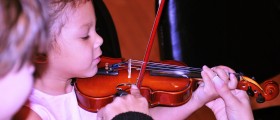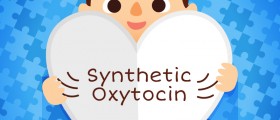
Music is one of the common forms of communication of just about any given culture on the planet. It is free of verbal skills and suits the entire spectrum of possible artistic tastes, moods and tempos.
That why we've got a thing called music therapy which targets people with emotional and communication problems – such as autists.
Musical therapists may use music to help patients meet one of the following ends:
build social skills
lower anxiety
develop new communication skills.
There is a thick line between music therapy and musical instruction. Those are two completely different things, and that's why instructors are not the same people as music therapist.
Why Music Therapy?
The reason behind seeking a musical therapists is because he can help an autist build social skills, resolve sensory issues, enhance communication, behavior, cognition, perceptual/motor skills, and self-reliance as well as self-determination – all means of determining which types of music the patient reacts to and how. In that way, the doctor builds kind of a new language of communication with the patient – via music.
Another reason is because people with autism tend to lack a display of responses. For some reason, they also tend to react to music – emotionally. So according to the fact, music is more than a valuable communication channel when it comes to people who have issues communicating otherwise.
What Does Music Therapy do for an Autist?
First off, it is important to note that music therapy works both for individual treatment as well as group therapy. According to reliable research (by The National Autistic Society), music therapy may:
rely on spontaneous musical improvisation, which means that the therapist uses various object one may drum with, or his or her very own voice, to respond to the sounds produced by the patient. That in turn encourages the patient to respond similarly, thus creating a musical language; or
rely upon the use of simple songs to communicate a particular mood or express a need by the patient. It is even possible for the therapist to respond musically to the least articulate of the patient's ways, such as: cries, screams, random body movement, etc. All of those may carry rhythm and can thus be utilized musically.
Finding a Qualified Musical Therapist
First off, it is important top note that a musical therapist must earn a degree from an American Music Therapy Association (AMTA) approved college.
Secondly, a musical therapist may work in a school setting, or on a child's individual educational plan. A musical therapist may also work in agencies that specialize in treating people suffering from autism.
- www.cdc.gov/ncbddd/autism/treatment.html
- www.nih.gov/research-training/medical-research-initiatives/sound-health-nih-kennedy-center-partnership/upcoming-events
- Photo courtesy of Jordanhill School D&T Dept by Flickr: www.flickr.com/photos/designandtechnologydepartment/5087715118/

















Your thoughts on this
Loading...